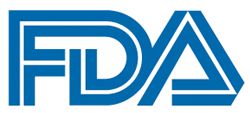Durvalumab Approved by FDA for Bladder Cancer
The PD-L1 inhibitor durvalumab has been granted an accelerated approval by the FDA for the treatment of patients with locally advanced or metastatic urothelial carcinoma.

The PD-L1 inhibitor durvalumab (Imfinzi) has been granted an accelerated approval by the FDA for the treatment of patients with locally advanced or metastatic urothelial carcinoma who have disease progression during or following platinum-containing chemotherapy or who have disease progression within 12 months of neoadjuvant or adjuvant treatment with platinum-containing chemotherapy.
A complementary diagnostic for PD-L1, the VENTANA PD-L1 (SP263) Assay, was simultaneously approved.
The approval was based on a single-arm trial that included 182 patients with locally advanced or metastatic urothelial carcinoma who experienced disease progression following platinum-containing chemotherapy.
In the study, the objective response rate (ORR) per blinded independent central review was 17.0% (95% CI, 11.9-23.3). At the data cutoff, the median duration of response was not reached (range, 0.9+ to 19.9+ months).
Among 95 patients with high PD-L1 expression the ORR was 26.3% (95% CI, 17.8-36.4). In the cohort of 73 patients with low or no PD-L1 expression, the ORR was 4.1% (95% CI, 0.9-11.5).
The median age of patients in the study was 67 years (range, 34-88), 64% were white, and 72% were male. Two-thirds of patients had visceral metastasis (bone, liver, or lung), including 34% with liver metastasis. Forty-one percent of patients had a baseline creatinine clearance of less than 60 mL/min and 66% had an ECOG performance score of 1.
Thirty-five percent of patients had received at least 2 prior lines systemic therapy. Prior cisplatin and prior carboplatin were reported 70% and 35% of patients, respectively. Among the overall population, 20% of patients had progressed after receiving platinum-containing neoadjuvant or adjuvant chemotherapy as their only prior line of therapy.
Patients were not eligible to enroll in the trial if they had a history of immunodeficiency; medical conditions that required systemic immunosuppression (not to exceed 10 mg/day of prednisone or equivalent); history of severe autoimmune disease; untreated CNS metastases; HIV; active tuberculosis, or hepatitis B or C infection.
Durvalumab was administered at 10 mg/kg IV every 2 weeks for up to 1 year or until disease progression or unacceptable toxicity. Tumors were assessed at weeks 6, 12, and 16, then every 8 weeks for the first year and every 12 weeks thereafter.
Overall, 31 patients achieved a response, including 5 complete responses (CRs) and 26 partial responses (PRs). Among patients with high PD-L1 expression, responses occurred in 25 patients, with 3 CRs and 22 PRs. Three patients in the PD-L1 low/none cohort had response, including 1 CR and 2 PRs. Three responses (1 CR and 2 PRs) were also achieved in the group of patients whose PD-L1 status was not evaluable.
All grade adverse events (AEs) occurring in 15% or more of patients included fatigue, musculoskeletal pain, constipation, decreased appetite, nausea, peripheral edema, and urinary tract infection.
Grade 3/4 AEs occurred in 43% of patients. Infection and immune-related AEs observed with durvalumab included pneumonitis, hepatitis, colitis, thyroid disease, adrenal insufficiency, and diabetes.
In February 2016, the FDA granted a breakthrough therapy designation to durvalumab as a treatment for patients with PD-L1positive inoperable or metastatic urothelial bladder cancer following progression on prior treatment with a platinum-based regimen.
The accelerated approval of durvalumab in bladder cancer is contingent upon results from a confirmatory trial.
Durvalumab is also being evaluated as a single agent and in combination with tremelimumab in the phase III DANUBE trial in the frontline setting for patients with metastatic urothelial carcinoma, regardless of their eligibility for cisplatin-based chemotherapy.